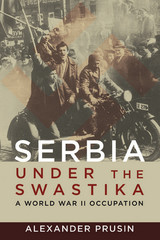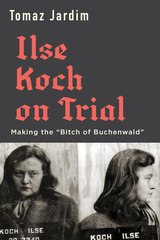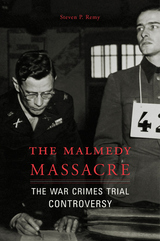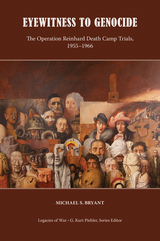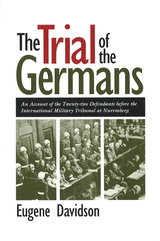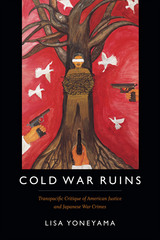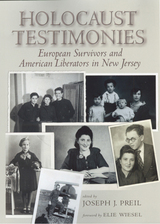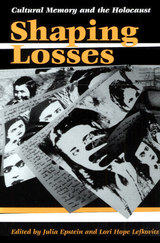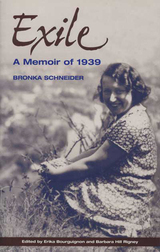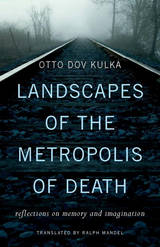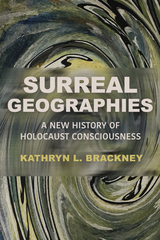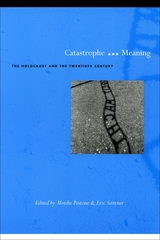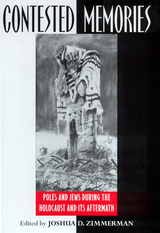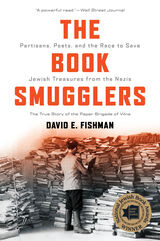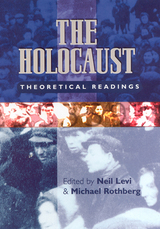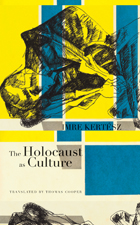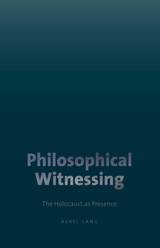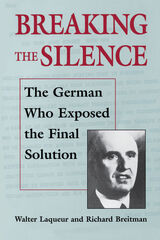Otto Dov Kulka has performed a minor miracle. He has written a masterpiece about his childhood in Auschwitz. With that he joins the select company of survivors who have dealt humanely with their experience of hell. But he comes late to his subject, and profits from long years of reflection. This lends his tone a rare richness and subtlety… Interspersed throughout are pithy abstractions, notably ‘the immutable law’ (echoing Kafka) and ‘the Great Death’ (recalling Rilke), which lend a lyrical, incantatory quality to the book. The narrative is also enriched with documentary photographs in the style of W. G. Sebald, showing painful memories: railway lines, piles of shoes, corpses in the snow. Yet for all its experimental character, and perhaps because of it, the story is lucid and direct… Kulka’s well-honed writing—excellently rendered into English by Ralph Mandel—bears witness to the worst that man can do to man, and in doing so testifies to the enduring power of the human spirit.
-- Jeremy Adler Times Literary Supplement
[An] astonishing book… In its essence this is not so much a book about Auschwitz as one about coming to terms with the shock of survival. Like the 11-year-old Kulka, who came within a few hundred meters of the crematoria, assuming that he would perish there, the writing hovers around the incineration, as he puts it, ‘like a moth circles a flame’… What, ultimately, makes Kulka’s book unlike any other first-hand account written about the camps is the authenticity of its vision of an 11-year-old boy… Whether or not setting all this down has done anything to relieve the unrelenting grip the ‘metropolis of death’ holds on his mind, or whether it has tightened that hold, Kulka does not say. But since he has done the rest of us—and the world—so great a kindness by writing his book, one hopes for his sake the former.
-- Simon Schama Financial Times
This is a great book: read it. And be grateful… So startling and so beautiful.
-- Bryan Appleyard Sunday Times
Landscapes of the Metropolis of Death is a work of inner truth, depicted through images, memories, and feelings. It is thus pervaded by a sense of paradox: a meticulous historian reflecting upon the intangible; a collection of exquisite, often individual pieces about a single harsh event, and a very readable book about an unimaginable event. Above all, this is a book that enriches the reader, to an extent much belied by its slim appearance… Underpinning every page is a sense of the historian ruefully shaking his head over the power of memory… The adult Kulka attempts to come to terms with his memories, but at the heart of the book is the child Kulka. It is he who experienced the events, and he invented his own language in his dreams of the camp. It was his Auschwitz, in the way he lived it and understood it, as a child. He knew that death was the only certainty in the camp—‘the immutable law of death,’ as he puts it—but he ultimately he survived, twice, through chance. The adult relives the death and the survival repeatedly, seemingly unable to accept that he was exempted from the overriding logic of Auschwitz. ‘However much I know that I must be caught,’ Kulka writes, ‘I always know, too, that I must be spared.’ It is the dialogue between the child and the man that makes this volume so compelling. There is often an unspoken trade-off in Holocaust books. We are curiously reading about the horrors, but we are also providing the service of remembrance. But Landscapes of the Metropolis of Death is a very different kind of Holocaust book. There is no blatant horror. Kulka imparts the unspeakable crimes through beautiful little segments of dreams and imagination. There are three poems, published here for the first time, from an unknown young woman who thrust them into the hands of a Kapo as she went into the gas chamber. The Kapo gave them to Kulka’s father. And throughout the pages there are photographs of the past and the present, the people and the places. In just 144 pages a vast emotional terrain is revealed, and made real. It is a metropolis of death, as lived throughout a life.
-- Ilana Bet-El Daily Beast
It is almost unclassifiable… It tries to penetrate the maze of established fact and personal experience in order to arrive at what seems unreachable… Nothing else I have read comes close to this profound examination of what the Holocaust means. Kulka looks everywhere for loopholes in the immutability of death. His journey strikes me as a quest similar to the attempt to describe the face of God or the structure of the universe. They are too vast and too mysterious. Not that this stops us, or this author, from trying.
-- Linda Grant New Statesman
There are almost 50 old photographs and drawings dispersed throughout the book; it looks like W. G. Sebald’s Austerlitz, and in some small sections drifts off into the memorial haze that many people appreciate in Sebald’s last novel. Kulka’s memoir—though he would deny the label—is both more haunting and more knowing… This is the product of a master historian—ironic, probing, present in the past, able to connect the particular with the cosmic. His memory is in the service of deep historical understanding, rendered in evocative prose that is here eloquently translated from Hebrew.
-- Thomas Laqueur The Guardian
[A] profound and melancholy book of remembrance… Death is in these pages a constant and close companion to the living… This is a grave, poetic and horrifying account of the Holocaust which does not so much revisit the Auschwitz of the past, but the Auschwitz of Kulka’s inner world. It is his own internalized city, with its own enduring horror.
-- Arifa Akbar The Independent
Powerful and haunting… In [some] places the book reads like a poisoned dream.
-- George Walden Bloomberg.com
In this moving and poignant testimony, distinguished historian Otto Dov Kulka draws the reader into the horror of the death-camp through a montage of historical research, essays and poetical images of memory.
-- Shereen Low Northern Echo
[Kulka’s] aim is not to provide a precise record of his time in the camp, but rather, to evoke something of the mythscape of what he repeatedly calls ‘the metropolis of death,’ a place whose sole purpose (at least after the departure of international monitors) is to murder as many people in as efficient a manner as possible… Some readers of the volume may be frustrated by its lack of explicit condemnation or moral outrage, its insistence on personal rumination rather than broad critique. That, though,seems for Kulka to be the business of historiography; here he is interested in something very different: evoking the experience of a place and time that existed beyond the farthest reaches of comprehension.
-- James Williams PopMatters
Landscapes of the Metropolis of Death makes for deeply disturbing but ultimately very rewarding reading, and is unlike any Holocaust memoir I have ever come across… This book is not a memoir in the conventional sense, but an extraordinary collection of some of the memories, ideas and dreams that make up Kulka’s internal landscape.
-- Keith Lowe The Telegraph
This memoir, which is more a book of moments, hauntings and dreams than a narrative, is not primarily about the mechanics of survival or even about the conditions of the camp. It is about death as city and death as law. In that respect it is unremitting and touches us all… If the whole has a hallucinatory power it is because the precisions coincide with the dreams.
-- George Szirtes The Times
[An] astonishing book… There are enough Holocaust survivor memoirs by historians to make a little canon. One of these, When Memory Comes, by the great Holocaust historian Saul Friedlander, is a classic of this small but fascinating and important genre. Landscapes of the Metropolis of Death deserves a place with that volume. It is, quite simply, extraordinary.
-- Robert Eaglestone Times Higher Education
Personal accounts of the Holocaust face the difficult task of bringing fresh perspective to one of the most well-documented events in modern history. Jewish History professor Kulka delivers his own tale with a refreshing mix of immediacy, imagery, and adroit historicism, a combination which masterfully depicts the mental gymnastics he’s gone through to understand this seminal time in his past. Kulka draws from his own journal entries and audio monologues in describing his time at family camps inside Theresienstadt and Auschwitz, places he considers part of the Metropolis of Death.
-- Publishers Weekly
This is one of the most remarkable testimonies to inhumanity that I know. The deeply moving recollections of Otto Dov Kulka’s boyhood years in Auschwitz, interwoven with reflections of elegiac, poetic quality, vividly convey the horror of the death-camp, the trauma of family and friends, and the indelible imprint left on the memory of a young boy who became a distinguished historian of the Holocaust. An extraordinarily important work which needs to be read.
-- Sir Ian Kershaw


